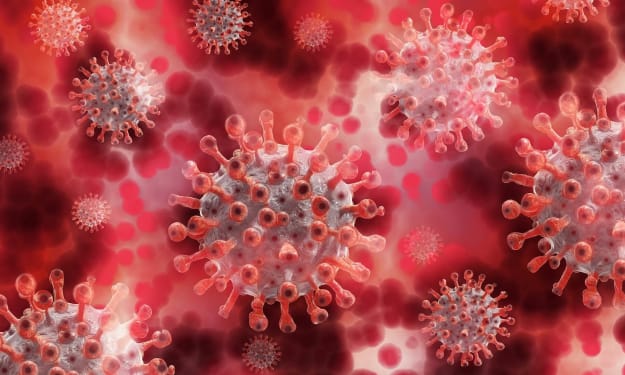
For how long will the COVID-19 litany linger on our bodies and minds? Humanity remains in dire need of an effective drug against the new coronavirus. Meanwhile, amidst the vaccine global rollout, the World Health Organization (WHO) released, on March 2, a living guideline: drugs to prevent COVID-19.
Hence, the Guideline Development Group (GDG) expert panel has made a recommendation against the use of hydroxychloroquine: “prophylaxis for individuals who do not have COVID-19 (high certainty evidence).”
Hydroxychloroquine
In the aftermath of the COVID-19 outbreak, there was a race for the silver bullet against the new coronavirus. Several world leaders revered Hydroxychloroquine to the point of calling the drug a pandemic “game-changer”. Some even took the guinea pig leap of faith and had it prescribed, hoping it could prevent infection, as they were proud to say out loud.
Politicians aren’t scientists; thus, unfortunately, they were wrong. The WHO’s strong recommendation links to six clinical studies with high-level evidence. Despite the early buzz, Hydroxychloroquine failed to reduce mortality and has now been deemed ineffective against COVID-19.
Thus, the research around hydroxychloroquine, as a prescription for the disease, is no longer a priority. Experts now consider that it is crucial to concentrate financial efforts on drugs that are more likely to fight the coronavirus.
Monoclonal Antibodies
In October 2020, the trumpets sounded, and the world was served a compelling marketing campaign focusing on Regeneron's monoclonal antibody treatment.
The drug was said to contain two potent antibodies that, in preliminary studies, were showing promising results in controlling the infection, especially if given during the early stages of the disease.
Although at the time, there was no scientific evidence to support that conclusion, the U.S. Food and Drug Administration authorized, in November, the biotech company Regeneron to use this treatment internally.
For months, the expensive treatment with monoclonal antibodies against COVID-19 was presenting itself as an effective therapy. Unfortunately, SARS-CoV-2 new variants have reshuffled the current therapeutical state-of-play.
The monoclonal antibody prophylaxis proved ineffective in combating the virus’s new variants from South Africa, the UK, and Brazil.
Regeneron, Eli Lilly, and GlaxoSmithKline (the three companies leading the way in monoclonal antibody treatment) are now basically stuck in a dead-end, as experts doubt any of the current therapies will be useful in the long run against these new variants.
Nevertheless, the drugs still work against the original strain of the virus and are currently being used to save countless lives in Europe and the United States.
Even if researchers are back to square one regarding these treatments, they haven’t given up and started from scratch the mass sequencing of the virus on their “drawing boards.”
Fluvoxamine
Despite only recently hearing about Fluvoxamine use in the treatment of COVID-19, I learned how the investigation has been ongoing for months now. Curiously, in hindsight, the therapy with Fluvoxamine follows the same reasoning I upheld in my article:
In the article mentioned above, I addressed the importance of modulating the immunologic response in severe cases of COVID-19, taking into account how in such cases it could lead to galloping organ failure and death:
The COVID-19 crisis is our Battle of the Thermopylae, and to regain control of the battlefield, the immune system should not, as far as possible, randomly trigger a full-scale overwhelming response leading to a “cytokine storm.
Following this reasoning, scientists are looking at several mechanisms related to immunomodulation. One of them involves the sigma-1 receptors (S1R) agonist, which would promote the regulation of inflammatory cytokines, hence preventing the so-called “cytokine-storms.”
For this reason, researchers around the world have been looking at drugs that can act on these inflammatory pathways. Fluvoxamine, a selective serotonin reuptake inhibitor (SSRI), is showing promising results.
Fluvoxamine is a relatively cheap generic drug used for over forty years in treating depression, anxiety, obsessive-compulsive disorder, and other psychiatric conditions.
Experts at the Washington University School of Medicine performed a fluvoxamine versus placebo experiment. Of the 152 people who initially participated in this double-blinded, randomized clinical trial, 80 received 100 mg of fluvoxamine, and 72 received a placebo three times a day for 15 days.
Eventually, 115 of the people completed the trial. None of the patients who received fluvoxamine ended up developing more severe symptoms. By contrast, six of 72 patients who had received the placebo experienced harsher manifestations of the disease.
The authors concluded: “Fluvoxamine seems to be promising as an early treatment for COVID to prevent clinical deterioration requiring hospitalization and to prevent possible long haul symptoms persisting beyond two weeks. Further randomized trial evidence is needed.”
Despite the promising results, the study was only preliminary, and researchers agree that further analysis is needed to determine the “clinical efficacy” of the drug in COVID-19 patients. Counting the initial research, we currently have three studies on this topic, and a real-time analysis of all of them is available here.
References:
Eric J. Lenze, Caline Mattar, Charles F. Zorumski, et al., Fluvoxamine vs Placebo and Clinical Deterioration in Outpatients With Symptomatic COVID-19A Randomized Clinical Trial, JAMA, November 12, 2020.
David Seftel, David R Boulware, Prospective Cohort of Fluvoxamine for Early Treatment of Coronavirus Disease 19, Open Forum Infectious Diseases, Volume 8, Issue 2, February 2021
Nicolas Hoertel et al., Association between antidepressant use and reduced risk of intubation or death in hospitalized patients with COVID-19: results from an observational study, Molecular Psychiatry, 4 February 2021.
The researchers at Washington University School of Medicine are testing a treatment for patients who have mild symptoms in the early course of COVID-19 infection. To this end, they are promoting the STOP COVID Trial. Please refer to the official page for further information.
Final Thoughts
Whenever the body is trying to fight off a hostile invading pathogen like SARS-CoV-2 — the novel coronavirus that causes COVID-19 — our immune system will release biological chemicals that stimulate cell pathways and allow for communication between cells: the so-called “cytokines”.
Uncontrolled cytokine response is the worst-case scenario for patients suffering from severe COVID-19. Thus, if Fluvoxamine has what it takes to be our cytokine platoon drill sergeant, please bring it to the forefront.
Meanwhile, I would like to praise all the scientists struggling through sleepless nights while looking for answers that could save lives. Hence, I will keep raising awareness concerning vaccines and cutting-edge research around any COVID-19 related topic, particularly in what concerns immune system modulators.
Thus, in the fight against COVID-19, we have to make every bullet count — instead of focusing solely on Hail Mary type, state-of-the-art vaccines.
Disclaimer:
Currently, there’s an overabundance of information related to COVID-19; some of this information may be false and potentially harmful. This article is for informational and entertainment purposes only. It only depicts my personal opinion and knowledge and should not be considered Health Advice. Please report to your local health authority for accurate and official guidance. If you see content online that you believe to be false or misleading, you can report it to the hosting social media platform.
About the Creator
Rui Alves
Hi, I'm Rui Alves, a teacher, army veteran & digital pathfinder. Author, alchemist of sound & Gen-AI artist.






Comments
There are no comments for this story
Be the first to respond and start the conversation.